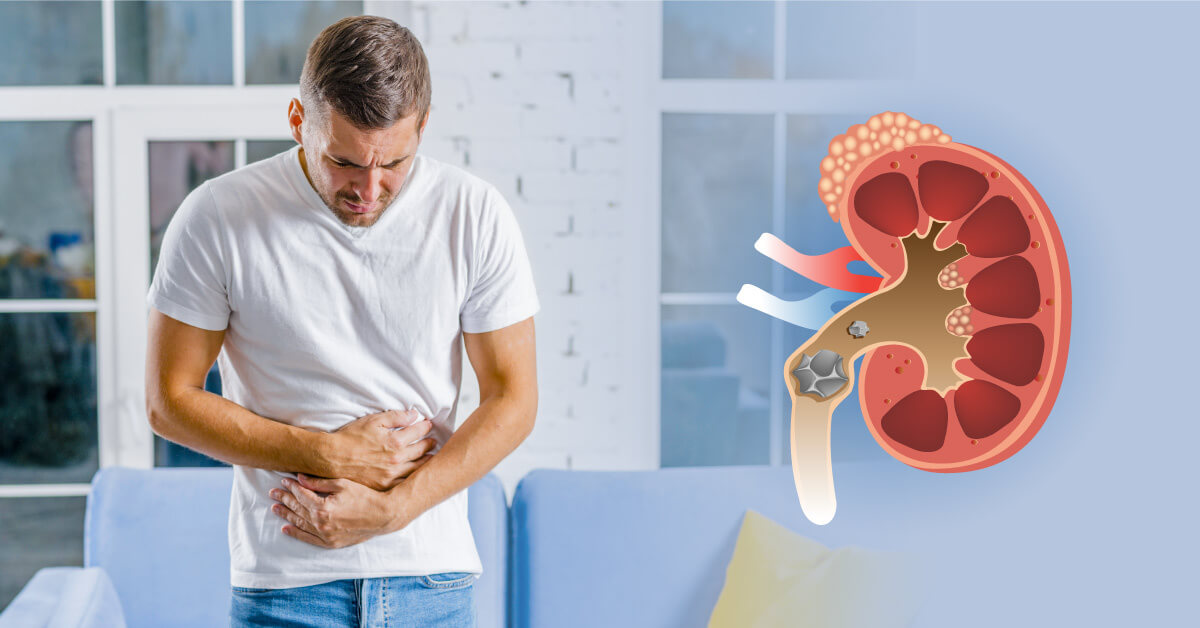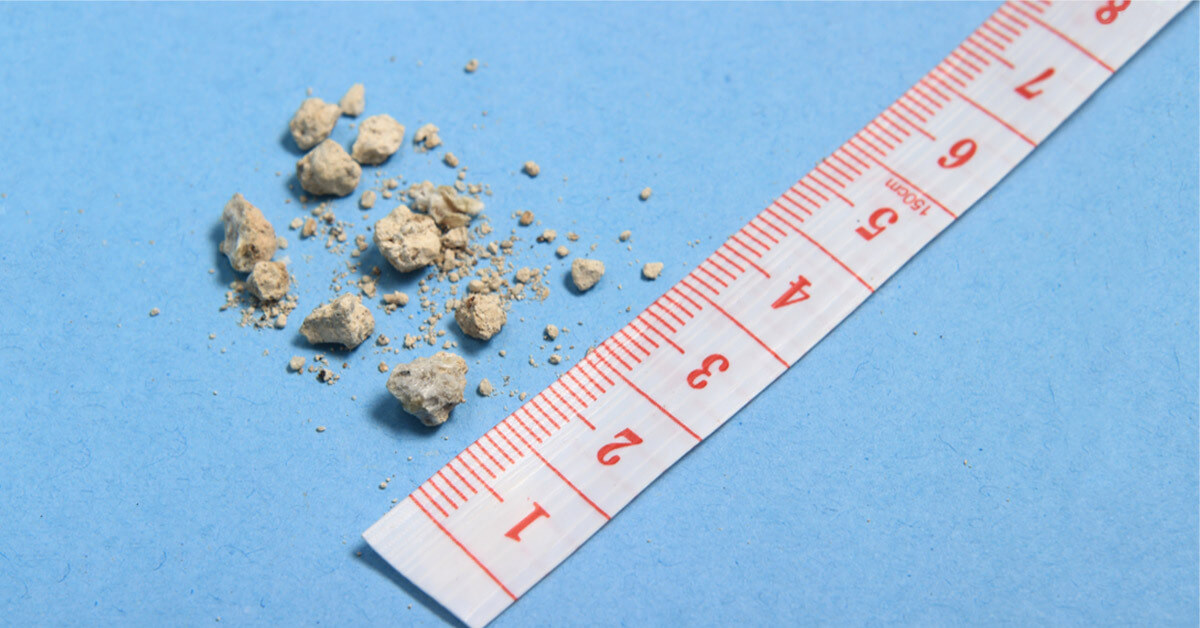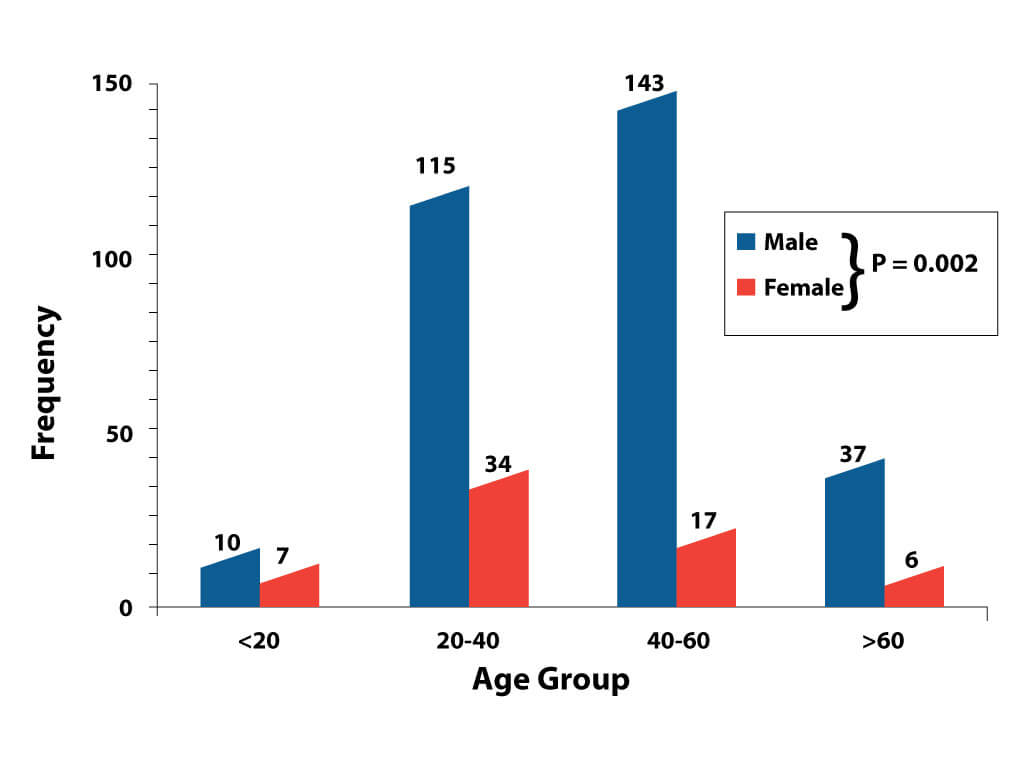
Kidney stones: Causes, Symptoms, Treatment and Prevention
The kidneys are used in removing the fluid and the waste from the blood to make urine. When the fluid is less in comparison to the wastes, all the waste sticks together in the Kidneys and these are termed as Kidney stones.
How common are kidney stones?
Each year the emergency rooms have more than half a million people suffering from Kidney stones. It is estimated that from ten people one person will surely have kidney stones at some time in their lives. There is an increase in the cases of Kidney stones in the United States from 3.8% in the late 1970s to 8.8% in the late 2000s. The increased cases of Kidney stones can be seen in everyone, men and women, whites and blacks. Having other major diseases such as blood pressure, obesity may increase the chances of Kidney stones.
Symptoms
The symptoms of Kidney stones can be noticed based on the size of stone. The size of the stone can vary, some Kidney stones are very small as a grain of sand and some can be large as a pebble, some can be even large as a golf ball. These all are the symptoms which can be noticeable:
 The main problem arises when there is a blockage or it causes irritation during that time the Kidney stone hurts. There are many cases in which Kidney stones do not cause damage and people get rid of it but it causes a lot of pain.
Causes of Kidney Stone
Every individual is exposed to the danger of Kidney stone, but some people have more chances of having it than the others. And it has been noticed that men suffer from it more as compared to the women. The chances of having Kidney stone rises if:
The main problem arises when there is a blockage or it causes irritation during that time the Kidney stone hurts. There are many cases in which Kidney stones do not cause damage and people get rid of it but it causes a lot of pain.
Causes of Kidney Stone
Every individual is exposed to the danger of Kidney stone, but some people have more chances of having it than the others. And it has been noticed that men suffer from it more as compared to the women. The chances of having Kidney stone rises if:
 What can I do to decrease the risk of Kidney stone?
What can I do to decrease the risk of Kidney stone?
 Intake of the fluids is the best way to prevent Kidney stones. It is essential to intake 8 to 12 cups of fluid per day. It is better to consult your doctor if you are suffering from Kidney disease and follow his instructions and intake the water accordingly. Decrease having sodium and animal protein such as meat, eggs to prevent Kidney disease. Doctors also recommend specific diets to prevent future kidneys.
Intake of the fluids is the best way to prevent Kidney stones. It is essential to intake 8 to 12 cups of fluid per day. It is better to consult your doctor if you are suffering from Kidney disease and follow his instructions and intake the water accordingly. Decrease having sodium and animal protein such as meat, eggs to prevent Kidney disease. Doctors also recommend specific diets to prevent future kidneys.
- Serious pain in the lower back and stomach, it can be on any of the side.
- Nausea or vomiting
- Blood in the urine or with the bad smell
- Fever and chills
 The main problem arises when there is a blockage or it causes irritation during that time the Kidney stone hurts. There are many cases in which Kidney stones do not cause damage and people get rid of it but it causes a lot of pain.
Causes of Kidney Stone
Every individual is exposed to the danger of Kidney stone, but some people have more chances of having it than the others. And it has been noticed that men suffer from it more as compared to the women. The chances of having Kidney stone rises if:
The main problem arises when there is a blockage or it causes irritation during that time the Kidney stone hurts. There are many cases in which Kidney stones do not cause damage and people get rid of it but it causes a lot of pain.
Causes of Kidney Stone
Every individual is exposed to the danger of Kidney stone, but some people have more chances of having it than the others. And it has been noticed that men suffer from it more as compared to the women. The chances of having Kidney stone rises if:
- Any history of having it earlier. It can be either you or someone else in the family. Water consumption is less
- Having diets that are rich in protein, sodium, and sugar.
- Suffering from obesity and overweight
- Suffering from any other Kidney disease
- If you have had gastric bypass surgery or any intestinal surgery
- Urine contains high levels of cysteine, oxalate, uric acid or calcium.
 What can I do to decrease the risk of Kidney stone?
What can I do to decrease the risk of Kidney stone?
- Increase the intake of fluid that helps to showcase that you are well hydrated and shows your urine is less concentrated with waste products.
- The less concentration of acid in urine decreases the chances of getting stone. Eating more fruits and vegetables decrease the level of acid in the urine.
- Decrease intake of foods which requires excess salt in your diet.
- Balance your weight and diet. Overweight, animal-based protein can increase the chances of stone.
 Intake of the fluids is the best way to prevent Kidney stones. It is essential to intake 8 to 12 cups of fluid per day. It is better to consult your doctor if you are suffering from Kidney disease and follow his instructions and intake the water accordingly. Decrease having sodium and animal protein such as meat, eggs to prevent Kidney disease. Doctors also recommend specific diets to prevent future kidneys.
Intake of the fluids is the best way to prevent Kidney stones. It is essential to intake 8 to 12 cups of fluid per day. It is better to consult your doctor if you are suffering from Kidney disease and follow his instructions and intake the water accordingly. Decrease having sodium and animal protein such as meat, eggs to prevent Kidney disease. Doctors also recommend specific diets to prevent future kidneys. Share this:
Recent Post
Tags
Acne Treatment
Arthritis
Arthritis causes
Arthritis symptoms
Arthritis treatment
Bipolar Disorder
Bipolar Disorder Symptoms
Bipolar Disorder Treatment
Breastfeeding
Breastfeeding tips
Breastfeeding tips for mother
dry scalp
dry scalp treatment
Ganglion Cysts
ganglion cysts treatment
Health App
infertility guide
infertility treatment
menopause
Migraine
Postpartum
Postpartum Care
Postpartum Care tips
Skin care
Vitamin D
Vitamin D Deficiency
Vitamin D Deficiency Causes
vitamin D deficiency symptoms
vitamin D deficiency treatment
winter skin care